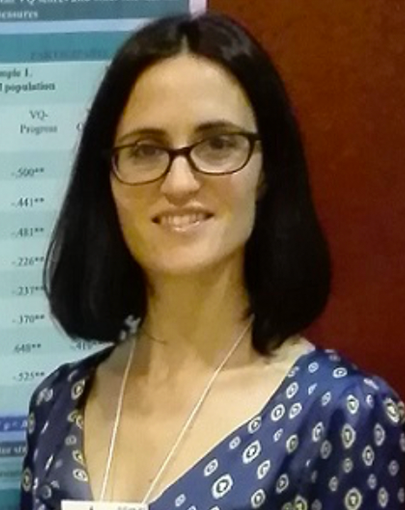Multimodal Human-AI Collaboration for Doctoral Education
The Project

Doctoral education suffers from widespread problems of dropout and low emotional well-being (which, in Castilla y León alone, can affect thousands of students) for which we do not have scalable solutions, either socio-educational or technological. Recent advances in artificial intelligence (AI) and related disciplines (such as Learning Analytics, LA) could offer scalable and customised solutions to support doctoral students, taking into account the uniqueness of each doctoral process.
However, like so many complex problems in which human factors (interpersonal, motivational) play a critical role, AI/LA solutions to these doctoral problems have so far failed, and incur significant ethical risks. To address these risks, we propose to use a human-AI teams approach (in which person and AI collaborate exploiting each actor’s strengths to enhance human capabilities) to support the well-being and persistence of doctoral students. Using a design-based research methodology and a human-centered design approach (in three iterations of increasing complexity and scale), the project will develop and empirically evaluate:
- a) structured collaborative person-IA processes to enhance the socioemotional and motivational skills needed to overcome the challenges of a PhD
- b) multimodal software architectures and specific AI models for the ubiquitous support of these human-AI collaborations
- c) design guidelines for human-AI team systems in education.
These project results will not only improve the well-being and employability of doctoral students directly. They will also serve as a blueprint for similar socio-technical systems that use AI in a trustworthy and humane way to improve the well-being of other collectives (e.g. in professional learning).
The Doctoral Educational Technology (DET) platform is a GenAI-enhanced system co-designed with doctoral students to support their progress and well-being through personalized analytics and reflection tools. It leverages single-case learning analytics (SCLA) and large language models to generate individualized insights based on students’ journaling and self-tracking data. By fostering a sense of progress and contextual awareness, DET aims to address key motivational challenges in doctoral education, such as perception of progress, well-being, and thesis topic appropriation.

Yannis Dimitriadis
Full Professor

Luis Pablo Prieto
Ramón y Cajal Research Fellow

Mohamed Saban
Postdoctoral Researcher

Henry Díaz-Chavarría
Doctoral Researcher

Juan Ignacio Asensio Pérez
Full Professor

Maria Jesus Rodriguez Triana
Ramón y Cajal Research Fellow

Miguel Luis Bote Lorenzo
Full Professor

Vanesa Gallego Lema
Professor

Sara García Sastre
Professor

Eduardo Gomez Sanchez
Full Professor

Ivan Manuel Jorrin Abellan
Researcher

Alejandra Martinez Mones
Full Professor

Juan Alberto Muñoz Cristobal
Professor

Bartolome Rubia Avi
Full Professor

Guillermo Vega Gorgojo
Full Professor

Sara Lorena Villagra Sobrino
Professor
Publications
Key publications
- Mohamed Saban, Luis P. Prieto, Díaz-Chavarría, H. B., & Yannis Dimitriadis. (accepted). Doctoral Educational Technology (DET): A GenAI-enhanced Platform to Support Doctoral Student Progress and Well-being through Single-case Analytics. Proceedings of the 20th European Conference on Technology Enhanced Learning (ECTEL 2025).
- Mohamed Saban, Luis P. Prieto, & Yannis Dimitriadis. (accepted). A GenAI-enhanced Platform for Personalized Doctoral Progress and Well-being Support through Single-case Analytics. Proceedings of 2025 International Conference on AI in Education (AIED). Late-Breaking Results.
- Rodríguez-Triana, M. J., Saban, M., Asensio-Pérez, J. I., Prieto, L. P., Haba-Ortuño, I., Villa-Torrano, C., & Gillet, D. (accepted). Code-aware LLM prompting in deductive qualitative analysis: A study in multi-framework analysis of learning designs. Proceedings of the 20th European Conference on Technology Enhanced Learning (ECTEL 2025).
- Prieto, L. P., Jovanovic, J., Odriozola-González, P., Rodríguez-Triana, M. J., Díaz-Chavarría, H. B., & Dimitriadis, Y. (2025). Disentangling doctoral well-being support in progress-focused workshops: Combining qualitative and quantitative data in single-case learning analytics. Learning and Individual Differences, 121, 102705. https://doi.org/10.1016/j.lindif.2025.102705
- Prieto, L. P., Viberg, O., Yip, J. C., & Topali, P. (2025). Aligning human values and educational technologies with value‐sensitive design. British Journal of Educational Technology, bjet.13602. https://doi.org/10.1111/bjet.13602
- Prieto, L. P., Alfredo, R., Díaz-Chavarría, H. B., Martinez-Maldonado, R., & Echeverría, V. (2025). VALA/AID: A Method for Rapid, Participatory Value-sensitive Learning Analytics and Artificial Intelligence Design. Proceedings of the 15th International Learning Analytics and Knowledge Conference, 950–956. https://doi.org/10.1145/3706468.3706553
Other publications
- Alonso-Prieto, V., Dimitriadis, Y., Prieto, L. P., Zurita, G., & Álvarez, C. (accepted). Towards Capturing Teacher Agency Manifestations within Orchestration Activities: A Conceptual-Analytical Framework. Proceedings of the 20th European Conference on Technology Enhanced Learning (ECTEL 2025).
- Topali, P., Ortega-Arranz, A., Bote-Lorenzo, M.L. & Asensio-Pérez, J.I. (accepted). Assisting Teachers in the Design of Feedback for Online Learning Using Large Language Models: A Theory-Driven Approach. In Proceedings of the 20th European Conference on Technology Enhanced Learning.
- Villa-Torrano, C., Suraworachet, W., Gómez-Sánchez, E., Asensio-Pérez, J. I., Bote-Lorenzo, M. L., Martínez-Monés, A., … & Dimitriadis, Y. (2025). Using learning design and learning analytics to promote, detect and support Socially-Shared Regulation of Learning: A systematic literature review. Computers & Education, 105261. doi: https://doi.org/10.1016/j.compedu.2025.105261
- Ortega-Arranz, A., Topali, P. & Molenaar, I. (2025). Configuring and Monitoring Students’ Interactions with Generative AI Tools: Supporting Teacher Autonomy. In Proceedings of the 15th International Learning Analytics and Knowledge Conference (pp. 895-902).
- Chejara, P., Kasepalu, R., Prieto, L., Rodríguez-Triana, M. J., & Ruiz-Calleja, A. (2024). Bringing Collaborative Analytics using Multimodal Data to Masses: Evaluation and Design Guidelines for Developing a MMLA System for Research and Teaching Practices in CSCL. Proceedings of the 14th Learning Analytics and Knowledge Conference, 800–806. https://doi.org/10.1145/3636555.3636877
Upcoming events
- Workshop USAL
Past events
- Charla USAL
- LASI WS
- Workshops UPF (2024, 2025)
- Workshops UVA (2024, 2025)
- Charla SNOLA
This project has been funded by the 2023 Call for Support for Applied Science Research Projects, co-financed by the European Regional Development Fund (FEDER). Junta de Castilla y León.

